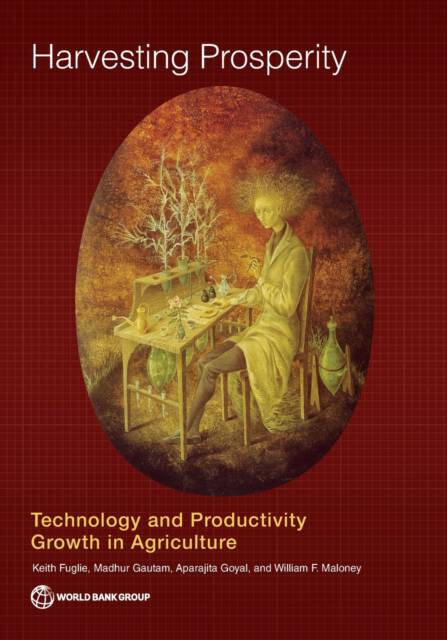
- Retrait gratuit dans votre magasin Club
- 7.000.000 titres dans notre catalogue
- Payer en toute sécurité
- Toujours un magasin près de chez vous
- Retrait gratuit dans votre magasin Club
- 7.000.0000 titres dans notre catalogue
- Payer en toute sécurité
- Toujours un magasin près de chez vous
Harvesting Prosperity
Technology and Productivity Growth in Agriculture
Keith Fuglie, Madhur Gautam, Aparajita GoyalDescription
Back cover blurb
Rising agricultural productivity has driven improvements in living standards for millennia. Today, redoubling that effort in developing countries is critical to reducing extreme poverty, ensuring food security for an increasing global population, and adapting to changes in climate. This volume presents fresh analysis on global trends and sources of productivity growth in agriculture and offers new perspectives on the drivers of that growth. It argues that gains from the reallocation of land and labor are not as promising as believed, so policy needs to focus more on the generation and dissemination of new technologies, which requires stepping up national research efforts. Yet, in many of the poorest nations, a serious research spending gap has emerged precisely at the time when the challenges faced by agriculture are intensifying. The book focuses on how this problem can be redressed in the public sector, as well as on reforms aimed at mobilizing new private sector actors and value chains, particularly creating a better enabling environment, reforming trade regulations, introducing new products, and strengthening intellectual property rights. On the demand side, the book examines what recent research reveals about policies to reduce the barriers impeding smallholder farmers from adopting new technologies.
Harvesting Prosperity is the fourth volume of the World Bank Productivity Project, which seeks to bring frontier thinking on the measurement and determinants of productivity to global policy makers.
"As rightly argued by the authors, growth in agricultural productivity is the essential instrument to promote development in low-income agriculture-based countries. Achieving this requires research and development, upgrading of universities, reinforcement of farmer capacities, removal of constraints to adoption, and the development of inclusive value chains with interlinked contracts. As important, such efforts also need to be placed within a context of comprehensive agricultural, rural, and structural transformations. However, in many countries implementation of the requisite policies has been lagging. This book, with contributions from many top experts in the field, provides the most up-to-date presentation of this argument and explains in detail how to successfully put its ideas into practice. Governments, the private sector, and civil society organizations need to study it carefully to turn the promise of agriculture for development into a reality."
Alain de Janvry and Elisabeth Sadoulet
Professors of the Graduate School, University of California at Berkeley
Spécifications
Parties prenantes
- Auteur(s) :
- Editeur:
Contenu
- Nombre de pages :
- 268
- Langue:
- Anglais
Caractéristiques
- EAN:
- 9781464813931
- Date de parution :
- 05-11-19
- Format:
- Livre broché
- Format numérique:
- Trade paperback (VS)
- Dimensions :
- 178 mm x 251 mm
- Poids :
- 566 g

Les avis
Nous publions uniquement les avis qui respectent les conditions requises. Consultez nos conditions pour les avis.






